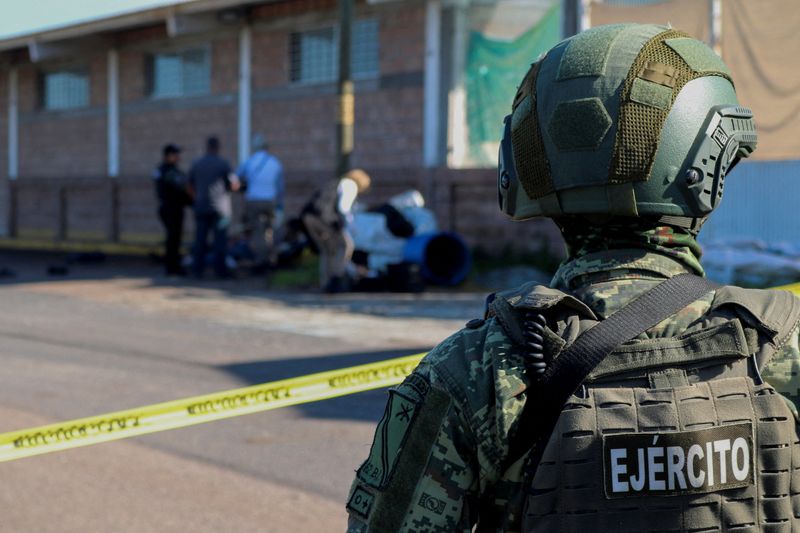MEXICO CITY (Reuters) - The U.S. ambassador to Mexico on Saturday rejected President Andres Manuel Lopez Obrador's claims that the U.S. was "co-responsible" for violence in the western state of Sinaloa, where more than 50 people have died in an intra-cartel war this month.
Two rival factions of the powerful Sinaloa Cartel have been fighting since Sept. 9, a conflict that can be traced to the high-profile arrest on U.S. soil of legendary trafficker, Ismael "El Mayo" Zambada, on July 25.
Zambada alleges he was kidnapped in Mexico and flown to the U.S. by Joaquin Guzman Lopez, a senior crime boss in a rival faction of the Sinaloa Cartel who had been holding talks with the U.S. about surrendering.
The incident has strained relations between the two countries, with Mexico demanding to know more details. The recent violence in Sinaloa has killed at least 53 people, left 51 missing, and paralyzed many towns and cities.
Lopez Obrador, who is due to step down next month, said on Thursday the U.S. shared responsibility for the violence because of its "operation," a reference to the prior surrender talks with Guzman.
U.S. Ambassador Ken Salazar, who had previously denied U.S. officials were involved in the alleged kidnapping of Zambada, rejected the Mexican president's argument.
"What is being seen in Sinaloa is not the fault of the United States," Salazar said in a press conference in the northern state of Chihuahua, adding that the U.S. cannot be held responsible for "the massacres that we see in different places."

Salazar said he has told incoming Mexican President Claudia Sheinbaum that cooperation between Mexico and the U.S. will have to be "strong and deep" to deal with the security challenges.
Mexican authorities said on Saturday that another 600 soldiers had arrived in Sinaloa to help reinforce security.